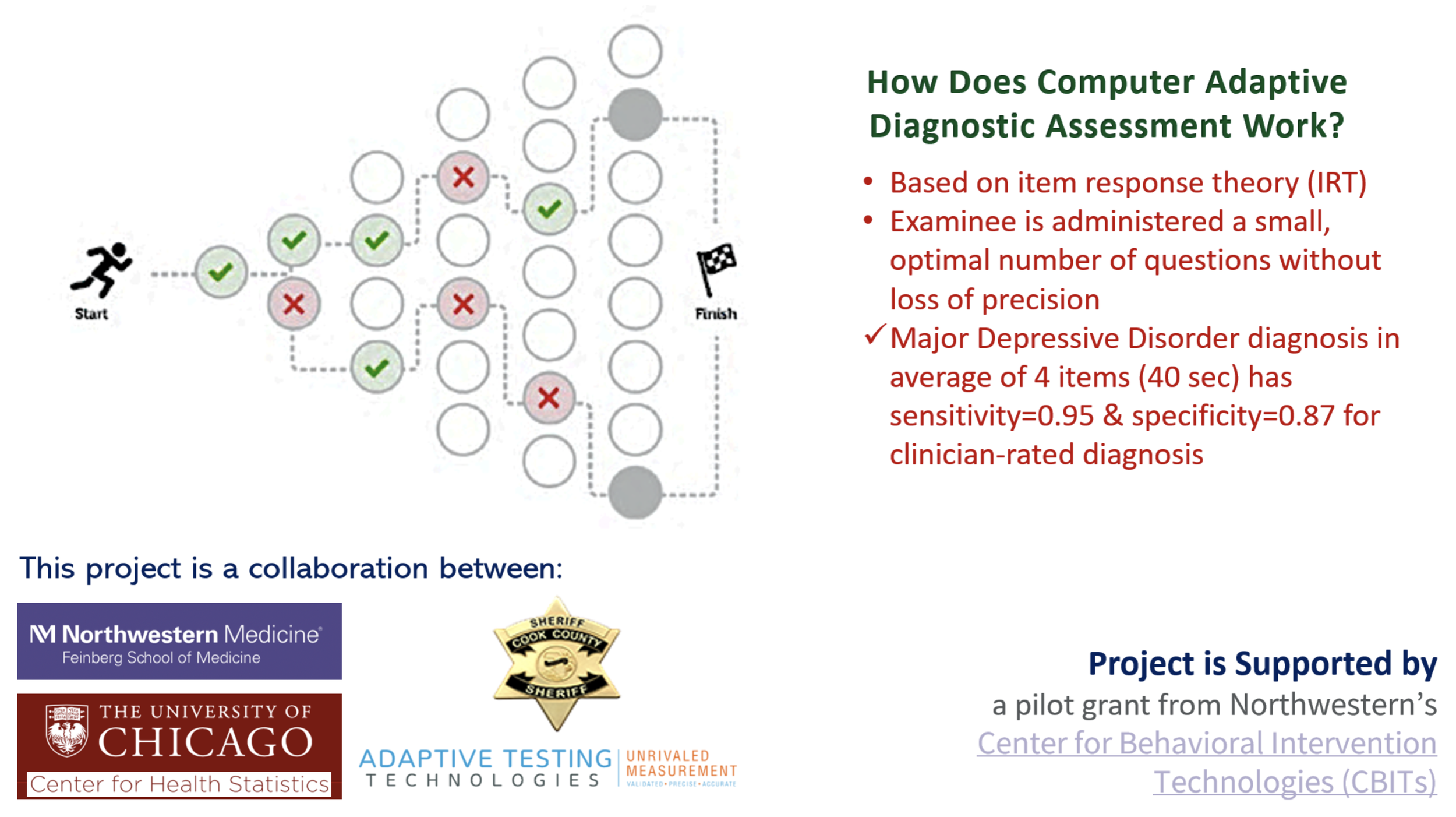
Digital Technology to Improve Access to Mental Health Assessment for Justice-Involved Populations
Inadequate access to mental health assessment is an area of substantial health disparity among justice-involved individuals such as criminal court defendants and those who are incarcerated in our nation’s jails and prisons. This disparity means that, despite the extremely high rates of psychiatric symptoms in this population, mental health conditions often go undiagnosed and under-treated, contributing to poor health outcomes, reoffending, and the cycle of re-incarceration. While the courts and correctional institutions are keenly aware of this problem, they frequently lack resources to conduct widespread mental health screening of individuals in their care.
Technology-enabled mental health assessment has shown great promise in helping to address this disparity by creating reliable, cost-efficient, and adaptable means of psychiatric assessment. The Computerized Adaptive Testing for Mental Health (CAT-MH) is one such technology, which uses principles of computer adaptive testing to efficiently and accurately measure psychiatric symptoms across diagnostic categories. The CAT-MH can be self-administered in 9 – 12 minutes on any internet connected device, and has been demonstrated to reliably assess symptoms of depression, anxiety, posttraumatic stress, suicidality, and other major psychiatric conditions in a variety of community and clinical populations including justice involved individuals. The CAT-MH assessment is designed to be repeatable in order to allow the assessment of change in psychiatric symptoms over time.
The current project is a collaboration between Northwestern’s Isaac Ray Research Program, Circuit Court of Cook County, and Cook County Department of Corrections. The primary aim of this project is to utilize CAT-MH to improve access to mental health screening for individuals who present to criminal courts or are detained in the Cook County Jail system. As of May 2021, we have implemented CAT-MH screening for detainees enrolled in select behavioral health programs at the Cook County Jail, and are in negotiations with the office of the Chief Judge to offer CAT-MH screening to defendants within the Restorative Justice Community Court system (part of the Circuit Court of Cook County) in Chicago. The aim of these pilot projects is to examine whether improved access to mental health screening within the criminal justice system leads to reduced re-incarceration rates, improved linkage to community mental health services, and better psychosocial outcomes. The long-term goals of this project are to: (1) offer free access to technology-enabled mental health screening to all individuals within the Cook County Court and Correctional System, and (2) create a scalable and generalizable model for using the CAT-MH to improve access to mental health services for all justice-involved individuals. It is expected that this work will have direct benefits to society via improving health outcomes of underserved populations, reducing crime, and impacting mass incarceration.
Supported by:
Northwestern Center for Behavioral Intervention Technologies https://cbits.northwestern.edu


